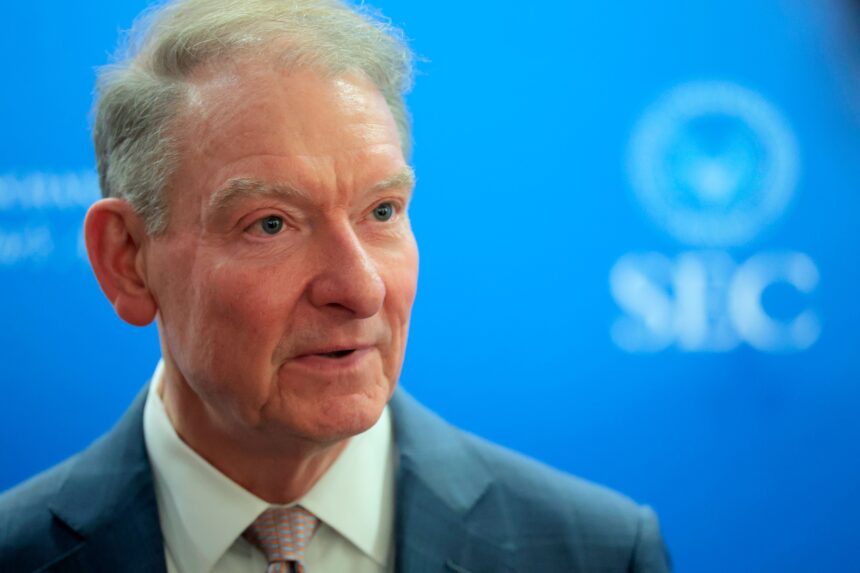The U.S. Securities and Exchange Commission (SEC) and the Commodity Futures Trading Commission (CFTC) are embarking on an initiative aimed at creating a more hospitable environment for financial firms, particularly those in the cryptocurrency sector. SEC Chair Paul Atkins and Acting CFTC Chair Caroline Pham have announced plans to hold a joint roundtable discussion later this month. This roundtable will focus on critical topics including prediction markets, decentralized finance, and the implications of 24/7 trading in traditional financial markets.
In a bid for greater collaboration, the two agencies have also released a joint statement expressing their desire for “greater harmonization” in regulatory frameworks. During a press call, Atkins emphasized the importance of collaboration over competition, stating, “It’s time to leave turf aside and really collaborate.”
Historically, the relationship between the two agencies has been strained, particularly during the previous administration when they often had conflicting approaches to the regulation of cryptocurrencies. Under former SEC Chair Gary Gensler, the SEC adopted a more adversarial stance toward cryptocurrencies, frequently taking enforcement actions against companies in the industry. Meanwhile, former CFTC Chair Rostin Behnam appeared somewhat more open to dialogue with crypto firms, leading to differing interpretations of how various digital assets should be classified—as securities or commodities, a debate that even touched on major assets like Ethereum.
Atkins and Pham are seeking to unify their regulatory approaches, declaring their commitment to attracting innovators back to the U.S. from international markets. The joint statement outlines their intention to adapt regulatory structures to accommodate the needs of modern, flexible trading environments.
When questioned about whether the SEC and CFTC have the necessary resources to effectively monitor a transition to 24/7 trading, Atkins highlighted the role of self-regulatory organizations (SROs) in overseeing trading activities. “It’s the markets themselves, the SROs that are charged with looking at the trading on their own platforms,” he noted, adding that these organizations would bear the primary responsibility for monitoring their operations.
Furthermore, Atkins introduced the idea of exploring a potential SRO for the cryptocurrency industry, indicating that this topic is part of ongoing discussions related to market structure legislation currently under consideration in Congress.
Pham, who has been overseeing the CFTC as the Senate reviews President Trump’s nominee Brian Quintenz, stated that the CFTC does not require additional staff to carry out its regulatory responsibilities regarding non-securities markets. She emphasized that consolidating various agency activities has improved productivity and enhanced capacity, demonstrating confidence in their ongoing initiatives.
Both leaders expressed optimism about future collaborations between their agencies, focusing on ensuring a conducive regulatory environment that supports innovation while maintaining market integrity.




